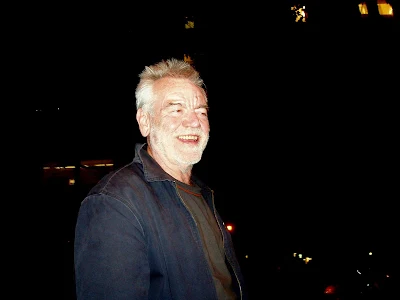I've been following a blog for a couple of months now that sliced right through me as I realised I what I was getting into. I never know when I'm reading the last post and I will only realise its demise at some unexpectedly triggered point after. Today he writes something that I've seen elsewhere but I think in this instance carries more weight. Creatives are often conditioned to be far more cautious than the writer below has shared with us.
" I'll give you a free gift. As a writer - albeit in a very small way - people always ask you where you get your ideas and they're always dumbfounded when I tell them that getting the ideas is the easy part, knocking them into shape is the hard bit."











































.jpg)